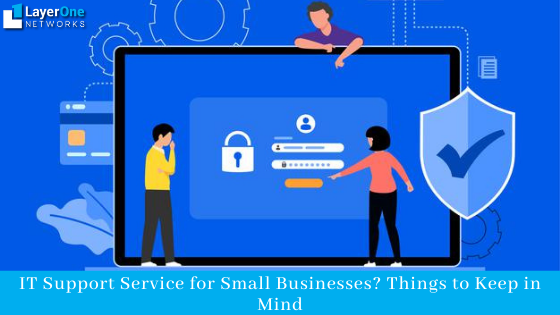Introduction:
The business world has transformed dramatically over the past two decades. Since 2020, this change has become even more rapid, bringing new challenges and opportunities every day.
In such a fast-moving environment, staying updated with the latest trends and technologies is no longer a matter of choice but a crucial necessity for businesses. A stark reminder of this reality is that many once-successful companies are no longer around because they couldn’t keep up with these changes.
Are you finding it challenging to keep pace with these technological changes? One effective solution is turning to a reliable Managed IT Services Provider. In this blog, we we’ll explain how MSPs help you to future proof IT infrastructure for gaining business growth.
Understanding MSPs and Their Offerings?
MSPs are specialized external companies that focus on managing and enhancing the IT needs of other businesses. They bring a wealth of knowledge and support across various IT areas. Their service offerings include managing critical components like computers, software, and network systems. MSPs ensure these components work efficiently and safely, vital for smooth operations and avoiding interruptions, especially in today’s quick-paced business environment.
More than just managing IT systems, MSPs ensure businesses run without interruptions. They minimize the risk of IT system failures and the downtime that can follow. This aspect is particularly important as it helps maintain continuous business operations. With MSPs managing the IT side of things, businesses are free to concentrate on their core operations and goals without worrying about IT-related disruptions hindering their progress.
However, the real advantage comes from selecting the right MSP. A good partnership can significantly strengthen your IT infrastructure, making it future-ready.
Ready to Future Proof IT Infrastructure?
Make Your Transition Smooth with Layer One Networks: Your Trusted Managed IT Services Corpus Christi.
Key Steps for Upgrading Your IT Infrastructure
As you plan to upgrade your IT infrastructure to keep pace with technological advancements, several important factors must be considered. Ensuring a smooth transition while protecting your current operations is crucial. Here’s a straightforward look at the top priorities:
- Maintain Uninterrupted Service: The primary goal is to avoid any downtime. Service interruptions can lead to revenue loss and negatively impact your brand’s reputation.
- Seamless Transition During Upgrades: It’s crucial to manage your IT upgrades in a way that does not disrupt your existing business activities. The upgrade process should be seamless and non-intrusive.
- Cost-Effectiveness: Implementing IT improvements cost-effectively is important for maximizing your return on investment. Strategic spending in the short term can yield significant long-term benefits.
In achieving these priorities, the right Managed Service Providers (MSPs) role cannot be overstated. Partnering with proficient MSPs can greatly facilitate a smooth transition. They provide the expertise and support needed to navigate the complexities of IT upgrades, ensuring minimal disruption to your ongoing operations and helping you balance cost and efficiency.
Factors to Consider When Selecting the Right Managed Services Provider
Selecting reliable Managed IT Services is crucial for any business aiming to future proof IT infrastructure. Here are key factors to consider:
- Flexibility: The MSP should adapt to your specific needs. Whether you require comprehensive support or assistance with specific tasks, the provider must be capable of delivering solutions without any compromise on quality or efficiency. This flexibility is essential in ensuring the MSP’s services align seamlessly with your business requirements.
- Scalability: Your chosen MSP must offer scalable services. As your business grows, the MSP should be able to expand its services accordingly, ensuring that your IT infrastructure evolves in line with technological advancements. Investing in a non-scalable service can drain resources, hindering your company’s growth.
- Comprehensive Services: Look for MSPs that offer a full range of services, including cybersecurity, cloud computing, 24/7 support, and network and server management. The ideal MSP will provide the necessary services and advise optimizing your IT infrastructure for maximum efficiency.
- Support and Experience: The experience of the MSP is crucial, but it’s also important to consider their track record and client feedback. Newer MSPs might offer innovative solutions, so examining their client history and reviews is worth examining. A top MSP will be able to demonstrate their capabilities and show a history of long-term client relationships.
- Transparency and Accessibility: Transparency in business practices and the tools used for tasks is vital for building trust. Accessibility is equally important – the MSP should offer 24/7 support with remote assistance capabilities to ensure no downtime could negatively impact your business.
- Cost-Effectiveness: The MSP’s pricing model should align with your budget and IT needs. Since pricing models can vary greatly between providers, making an informed decision that balances cost with the quality and range of services offered is important.
How MSPs Can Help Future Proof IT Infrastructure of Your Business

Future-proofing your company is a multifaceted task, and Managed IT Service Providers (MSPs) can play a pivotal role in each aspect.
Creating a Strategic IT Roadmap
A well-defined IT roadmap is essential for responding effectively to new challenges. MSPs can assist in formulating this strategy, enhancing your business’s resilience against unforeseen events. They help plan how IT investments and actions are directed, ensuring they align with your long-term business goals.
Future-Proofing Through Technology and Infrastructure Upgrades
Keeping up-to-date with the latest technology developments is vital. Regular infrastructure and technology upgrades are necessary to maintain peak system performance. MSPs are skilled in assessing your current tech environment and identifying which areas need updates, network infrastructure, software, or hardware. They provide comprehensive IT management and support services, including
- 24×7 help desk support
- Server and network management
- Regular security and software updates
Thus keeping your IT infrastructure modern and efficient.
Leveraging Cloud Computing Services
Managed Cloud Services Provider can guide your business in transitioning from on-premise to cloud-based services. Migrating processes like storage, email, and servers to the cloud enhances flexibility and reduces hardware, office space, and IT staffing costs.
IT Consulting Expertise
MSPs also serve as IT consulting experts. They can evaluate your IT infrastructure needs and advise on appropriate technology investments. This may include services like web hosting, VoIP phone systems, and design. Their expertise lets your in-house IT staff focus on critical, non-outsourced tasks.
Disaster Recovery and Business Continuity Planning
Disruptions from natural disasters, cyberattacks, or system failures can be catastrophic. Data backup and recovery services offered by MSPs help develop and implement strategies to protect your data and systems while minimizing downtime, ensuring your business remains operational through any crisis.
Cybersecurity and Data Protection
A robust defense strategy is crucial in an era of increasing cyber threats. MSPs can assess your security measures, identify vulnerabilities, and implement protections for your systems and data. This includes firewalls, antivirus software, data encryption, and regular backups, safeguarding your business against digital threats.
Choose Layer One Networks: Your Reliable Managed IT Services Provider for Securing Business’s Future

Ensuring your business is ready for the future is crucial in today’s fast-moving tech world. Partnering with a local Managed IT Services Provider can help your business stay on top of tech trends and meet long-term goals.
Layer One Networks in Corpus Christi is a great example of an efficient and dependable MSP that helps businesses tackle complex tech challenges and reduce downtime. Our proactive IT management approach and our skilled team means your networks, software, cloud services, and hardware are all well taken care of, 24/7.
We also prioritize cybersecurity, ensuring your data and systems are protected against threats. We work closely with you to develop a strategic IT plan tailored to your needs, helping your business stay ready for future tech changes or challenges.
Choose Layer One Networks for a partnership that supports your needs today and prepares you for tomorrow’s success.












